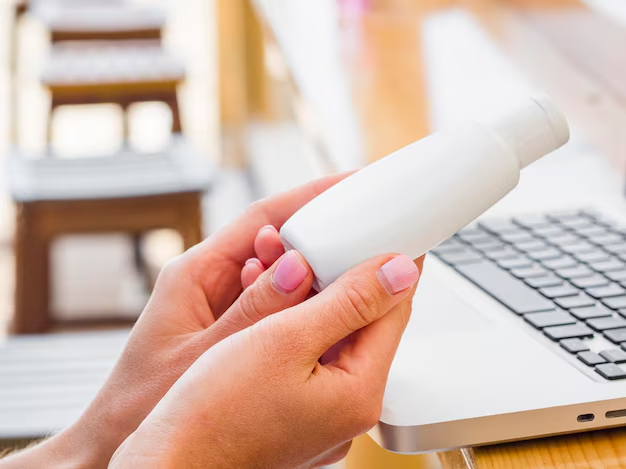How Should Tirzepatide Be Stored Outside the Refrigerator? Your Complete Guide
In the realm of pharmaceutical storage, medications often come with specific guidelines to ensure their efficacy and safety. Tirzepatide, a medication gaining attention for its role in managing certain health conditions, is no exception. Understanding the storage needs of tirzepatide, particularly its tolerance to being outside the refrigerator, is crucial for maintaining its effectiveness.
Understanding Tirzepatide's Storage Needs
Tirzepatide is a peptide-based drug, a category often sensitive to temperature variations. While specific instructions might vary based on the manufacturer, there is a general consensus on how to store such medications for optimal potency.
Ideal Storage Conditions
Typically, tirzepatide requires refrigeration at temperatures between 36°F and 46°F (2°C to 8°C). This range helps sustain the drug’s molecular stability and, consequently, its efficacy when administered.
- Refrigeration: Always aim to store tirzepatide in its original packaging inside the refrigerator.
- Avoid Freezing: Freezing the medication can denature its active components, making it less effective or entirely ineffective.
Short-Term Exposure Outside Refrigeration
Understanding how long tirzepatide can be out of the refrigerator without compromising its integrity is important, especially for those who travel frequently or manage their medication while on the move.
- Room Temperature Tolerance: Tirzepatide can generally be left at room temperature, which is typically defined as 59°F to 86°F (15°C to 30°C), for short periods. Many medications can tolerate exposure for up to 24 hours, but it's best to consult the specific storage instructions provided with your medication to ensure compliance with safety standards.
Practical Scenarios: Traveling with Tirzepatide
Traveling poses several storage challenges, particularly if direct access to refrigeration is limited. Here’s how to manage tirzepatide effectively while traveling:
Packing Tips for Travel
- Use Insulated Bags: For road trips or long journeys, keep tirzepatide in insulated bags. Adding cold packs can help maintain the required temperature.
- Hotel Refrigeration: Most hotels offer mini-refrigerators either in room or upon request. Ensure it operates within the medication's required range before use.
- Airport Security: When flying, carry tirzepatide in your carry-on luggage. Inform security personnel about the medication during screening to avoid unnecessary delays.
- Identification: Always keep a healthcare professional’s note or prescription label handy to validate your need for carrying medication, especially critical during international travels.
Emergency Measures
In unexpected situations where refrigeration isn't accessible, be aware of the emergency measures you can take:
- Temporary Storage Alternatives: If standard refrigeration is unavailable, some natural cooling solutions like keeping it on a lower shelf or in a cooler basement area might temporarily mitigate temperature spikes.
- Use Immediately: If the medication is left unrefrigerated beyond its known tolerance, consider using it at the earliest scheduled dose and returning it to appropriate storage conditions as soon as possible.
Exploring Related Concerns
Expanding the conversation around tirzepatide storage invariably leads to questions about safety, efficacy over time, and how to handle the medication under various conditions.
Signs of Compromise
Understanding signs of potential compromise is integral to ensuring that tirzepatide remains safe to use:
- Physical Changes: Any discoloration, cloudiness, or particulate matter indicates that the medication might be compromised.
- Packaging Integrity: Damaged packages or tampered seals warrant caution and, potentially, disposal.
Shelf Life and Efficacy
Let's explore the implications of shelf life on tirzepatide’s effectiveness:
- Expiration Dates: Always check the expiration date, an indicator of how long the drug is expected to remain viable.
- Post-Exposure Efficacy: If the drug has been outside recommended conditions, consider efficacy potentially diminished, and consult a healthcare provider as necessary.
Safe Disposal Practices
Once tirzepatide no longer meets storage standards or reaches its expiry, safeguarding others from accidental ingestion is critical.
- Follow Local Guidelines: Many locales have specific disposal procedures for medications; however, if unavailable, most pharmacies offer take-back programs.
- Avoid Flushing or Trash Disposal: Direct disposal into sewage systems or household trash can harm the environment and pose risks to others.
Key Takeaways and Tips
Here’s a concise summary of the crucial storage principles for tirzepatide:
- 🗄️ Store in Refrigerator: Keep in dedicated medical storage sections to avoid freezing.
- 📦 Maintain Packaging: Always retain the original packaging to protect it from sunlight or air exposure.
- ✈️ Travel Smart: Use insulated bags and maintain prescriptions for smooth airport transitions.
- ⚠️ Monitor Exposure: Ensure minimal time at room temperature; revert to refrigeration when possible.
- 🔍 Inspect Regularly: Regularly assess for any visual changes that could indicate problems.
Navigating the complexities of medication storage, like that of tirzepatide, involves maintaining an environment that upholds the medication’s integrity while recognizing practical limitations. By adhering to best practices and regularly reviewing specific medication guidelines, you ensure not only the safety and efficacy of the drug but also peace of mind as you manage your health treatments.

